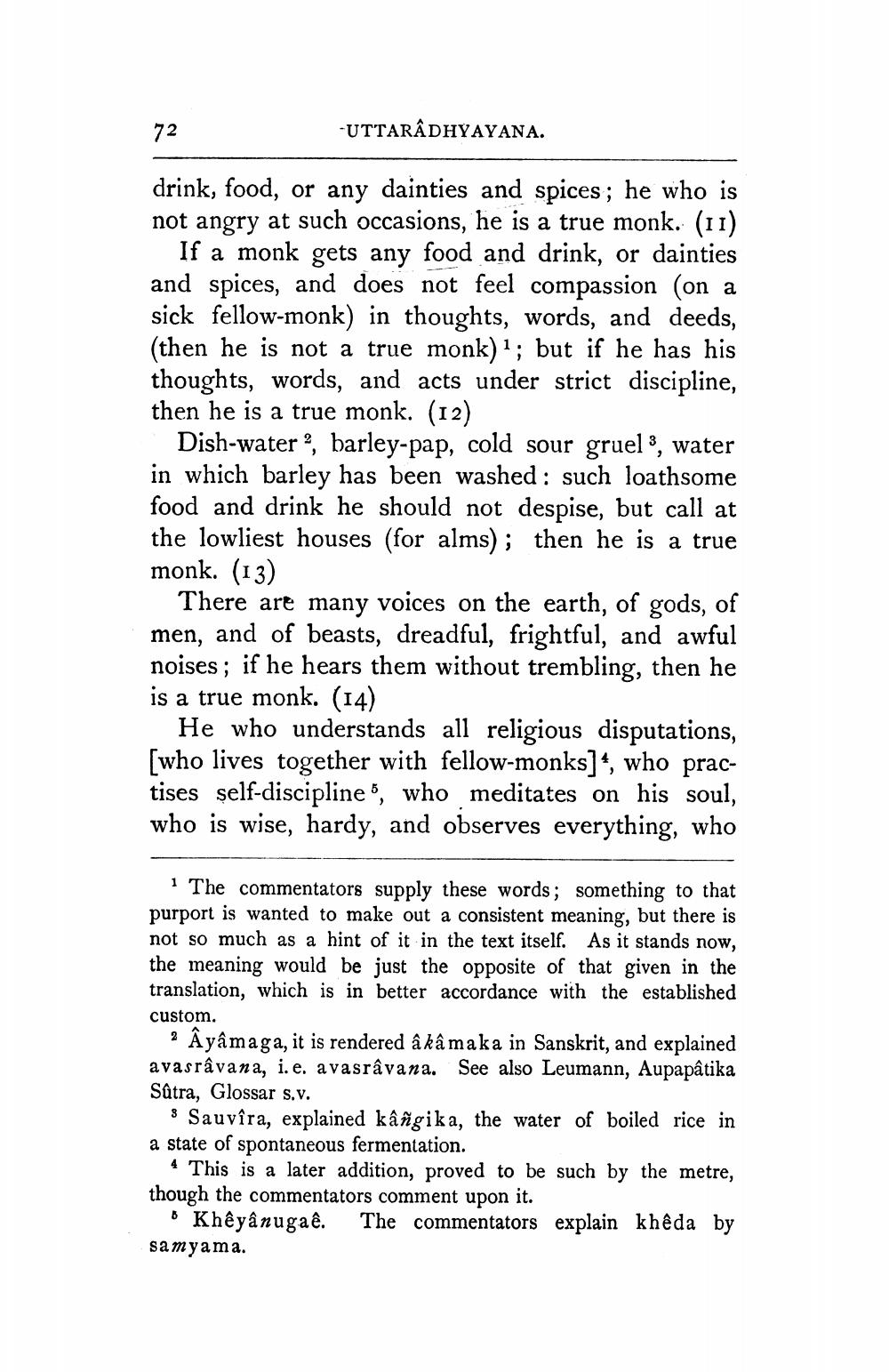________________
-UTTARADHYAYANA.
drink, food, or any dainties and spices; he who is not angry at such occasions, he is a true monk. (11)
If a monk gets any food and drink, or dainties and spices, and does not feel compassion (on a sick fellow-monk) in thoughts, words, and deeds, (then he is not a true monk) 1; but if he has his thoughts, words, and acts under strict discipline, then he is a true monk. (12)
Dish-water 2, barley-pap, cold sour gruel3, water in which barley has been washed: such loathsome food and drink he should not despise, but call at the lowliest houses (for alms); then he is a true monk. (13)
72
There are many voices on the earth, of gods, of men, and of beasts, dreadful, frightful, and awful noises; if he hears them without trembling, then he is a true monk. (14)
He who understands all religious disputations, [who lives together with fellow-monks], who practises self-discipline, who meditates on his soul, who is wise, hardy, and observes everything, who
1 The commentators supply these words; something to that purport is wanted to make out a consistent meaning, but there is not so much as a hint of it in the text itself. As it stands now, the meaning would be just the opposite of that given in the translation, which is in better accordance with the established
custom.
2 Âyâmaga, it is rendered â kâ maka in Sanskrit, and explained avasrâvana, i. e. avasrâvana. See also Leumann, Aupapâtika Sutra, Glossar s.v.
3 Sauvîra, explained kâñgika, the water of boiled rice in a state of spontaneous fermentation.
4 This is a later addition, proved to be such by the metre, though the commentators comment upon it.
Khêyânugaê. The commentators explain khêda by
samyama.




